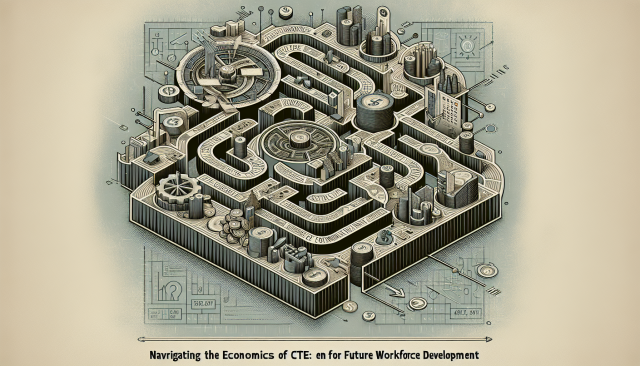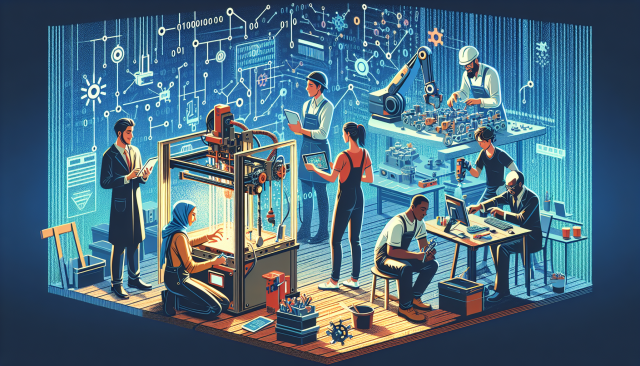Productivity is often touted as the ultimate measure of economic progress, innovation, and prosperity. Policymakers, economists, and development agencies use productivity metrics to compare nations, assess their growth potential, and recommend policy interventions. However, existing productivity frameworks often fail to provide an accurate comparison between nations with vastly different socioeconomic contexts. In the age of AI, where technological disparities further deepen these inequalities, there is an urgent need to rethink these frameworks.
This blog explores the limitations of current productivity metrics, the challenges they pose, and why developing more inclusive and context-aware frameworks is critical for equitable global development.
Understanding Existing Productivity Metrics
Productivity is typically measured as output per unit of input, often expressed as labor productivity (output per worker or per hour worked) or total factor productivity (TFP), which accounts for various inputs like capital and technology. Common productivity indicators include:
- GDP per hour worked: A measure of how efficiently labor is utilized.
- Capital productivity: Output generated relative to the capital invested.
- Multifactor productivity: Captures growth not attributed to inputs such as labor or capital, reflecting factors like technological progress.
These metrics are widely used by global organizations like the International Monetary Fund (IMF), the World Bank, and the Organization for Economic Co-operation and Development (OECD). However, they are often one-size-fits-all measures, ignoring critical socioeconomic nuances that vary across countries.
2. The Socioeconomic Context: Why Existing Frameworks Fall Short
Variability in Labor Market Conditions
Developed nations often have more formalized labor markets with high levels of productivity, driven by access to advanced technology, robust infrastructure, and efficient systems. Conversely, developing nations frequently rely on informal sectors, subsistence agriculture, or small-scale enterprises, which are not accurately captured by traditional productivity metrics.
For instance, comparing productivity in agriculture-heavy economies like Ethiopia to industrialized nations like Germany ignores contextual differences, such as access to capital, education, and infrastructure.
Differences in Technological Penetration
The age of AI has intensified disparities in technological access and usage across nations. Countries with advanced AI integration benefit from productivity gains that are simply unattainable for nations lacking access to AI tools, training, or infrastructure. Traditional productivity metrics do not account for the varying degrees of technological diffusion, leading to skewed comparisons.
Social and Environmental Factors
Existing frameworks often ignore how social and environmental factors affect productivity. Health, education, gender equality, and environmental sustainability are crucial determinants of productivity but are often treated as externalities in conventional measures.
For example, productivity losses due to poor health conditions in low-income countries are not adequately factored into the analysis, despite their significant impact on output.
The Age of AI: Exacerbating or Redefining Inequality?
The Digital Divide
The AI revolution has the potential to widen the productivity gap between nations. Countries that can afford to invest in AI, automation, and machine learning reap significant productivity gains, while others lag behind due to a lack of resources. This “digital divide” exacerbates existing inequalities in global productivity.
Consider how AI-driven industries in the United States or South Korea are generating exponential growth compared to countries without access to similar technologies. Current frameworks fail to account for these disparities, instead grouping nations under broad categories that obscure meaningful differences.
Automation of Low-Skilled Jobs
Automation, driven by AI, is rapidly replacing low-skilled jobs, particularly in manufacturing and service industries. While this shift boosts productivity in AI-rich nations, it disproportionately affects developing countries that rely on labor-intensive sectors.
For example, AI-powered robotics can replace garment workers in developed nations, but low-cost labor in countries like Bangladesh or Vietnam becomes vulnerable to job displacement. Existing productivity frameworks do not reflect these job losses and their long-term socioeconomic impacts.
AI’s Role in Improving Measurement Accuracy
While AI exacerbates certain inequalities, it also presents opportunities to create better measurement tools. AI-driven data collection and analysis can provide more nuanced insights into local contexts, enabling productivity frameworks to reflect the unique challenges and opportunities of each nation.
The Need for New Productivity Frameworks
To address the limitations of current metrics and adapt to the AI-driven era, policymakers and economists must rethink how productivity is measured. New frameworks should incorporate the following elements:
Context-Sensitive Indicators
Productivity metrics should account for local conditions, such as sectoral composition, technological access, and social factors. For example, countries with large informal sectors should have alternative measures that recognize contributions beyond traditional formal outputs.
One potential approach is to develop sector-specific productivity metrics that capture contributions from agriculture, services, and manufacturing, with adjustments for informal labor.
Inclusive Measures of Human Capital
Human capital indicators should go beyond formal education to include access to lifelong learning, digital literacy, and on-the-job training. Metrics that consider health, well-being, and gender equality will provide a more comprehensive picture of a nation’s productive capacity.
Environmental Sustainability
Given the increasing focus on sustainable development, productivity frameworks should include environmental factors such as carbon emissions, resource efficiency, and ecological preservation. Measuring “green productivity” can help balance economic growth with environmental responsibility.
AI-Enhanced Data Collection
AI-powered analytics can improve data accuracy and granularity, capturing real-time productivity dynamics. By leveraging AI, policymakers can identify bottlenecks and areas for improvement, allowing for more targeted interventions.
Case Studies: Countries Rethinking Productivity Metrics
Bhutan’s Gross National Happiness (GNH)
Bhutan’s GNH framework emphasizes well-being and holistic development over traditional GDP measures. While not a direct productivity metric, it highlights the importance of considering non-economic factors when assessing national progress.
New Zealand’s Living Standards Framework
New Zealand has adopted a living standards framework that integrates well-being, environmental sustainability, and social equity into its economic assessments. This approach provides a more comprehensive view of productivity by incorporating factors often overlooked in conventional metrics.
Recommendations for Policymakers
Invest in Data Infrastructure: Developing nations need access to robust data collection and analysis tools, including AI-based systems, to improve productivity measurement.
Encourage Knowledge Sharing: International collaborations can help share best practices and innovations in productivity measurement.
Promote Lifelong Learning: Investing in education and digital skills development is critical for narrowing the productivity gap.
Adopt Context-Specific Policies: Tailoring policies to the unique needs of each country or region ensures more effective interventions.
Conclusion
The traditional frameworks for measuring productivity fail to account for the diverse socioeconomic contexts of different nations, leading to inaccurate comparisons and misguided policy recommendations. In the age of AI, these limitations are becoming even more pronounced as technological disparities widen the productivity gap.
To foster equitable development, there is an urgent need for new productivity frameworks that consider context-sensitive indicators, human capital, environmental sustainability, and AI-enhanced data collection. By doing so, nations can better assess their progress, identify areas for improvement, and create more inclusive and sustainable growth strategies.
In this rapidly evolving landscape, the future of productivity lies not in uniformity, but in embracing diversity and complexity. vision and efficiency of AI with the warmth and understanding of human connection.































